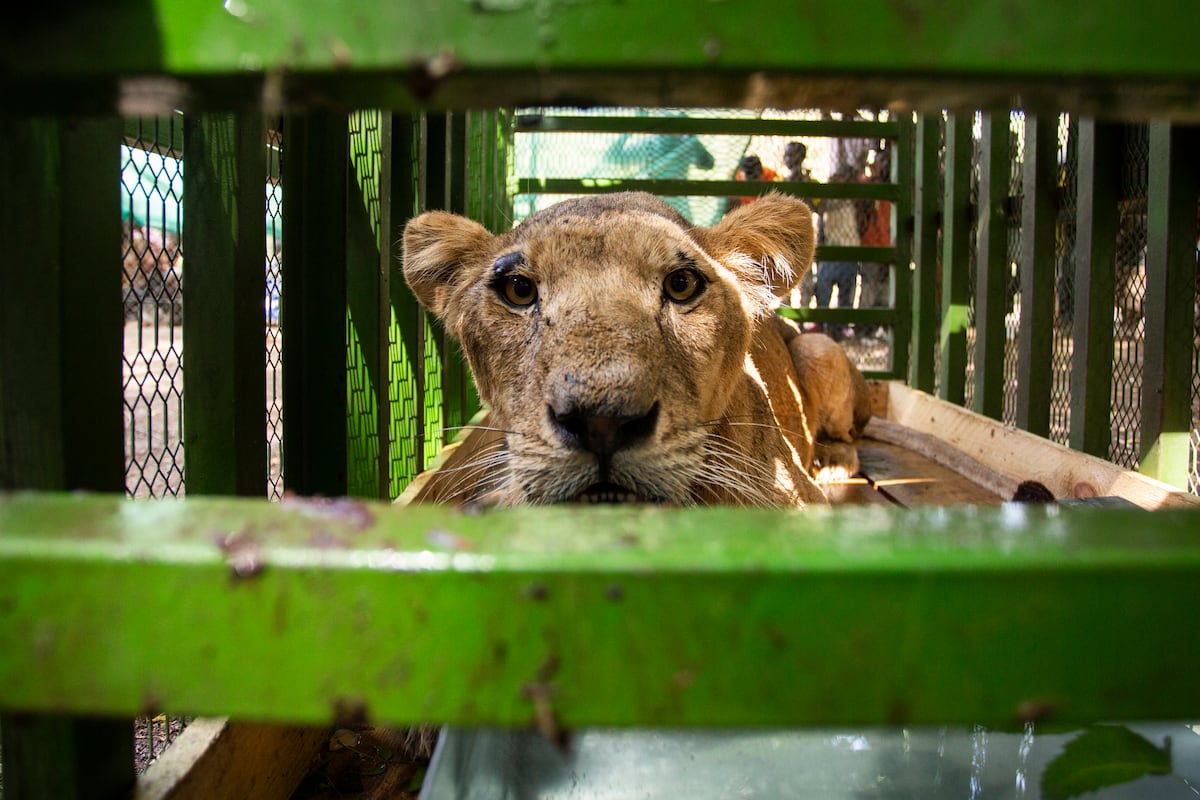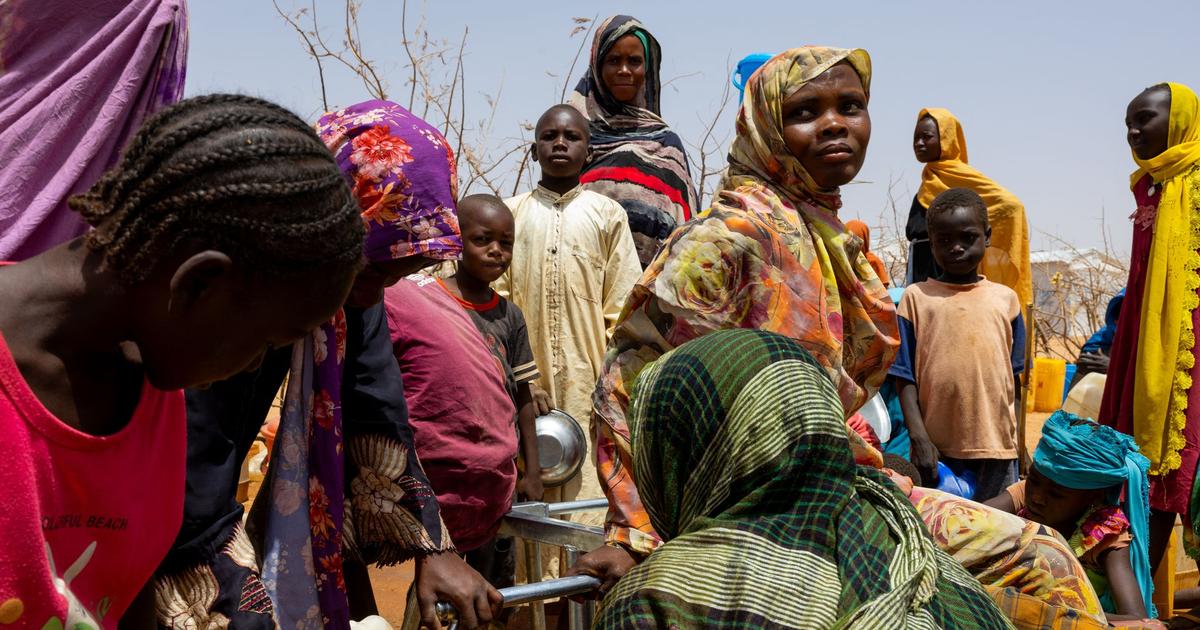Icon: enlarge
Floods after a dam breach in Sudan (beginning of October 2020)
Photo: ANDREEA CAMPEANU / REUTERS
SPIEGEL
: A state of emergency was declared in Sudan in September due to severe flooding. What is the current situation in the country like?
Hameed Nuru
: Fortunately, the tides are slowly starting to recede and the rains are easing.
But we're talking about the worst floods we've seen in the past hundred years.
The worst since measurements were taken and recorded here.
Around 875,000 people are affected by the floods in Sudan alone.
Around 150 people have died so far.
SPIEGEL
: Which parts of the country are affected?
Nuru
: There is flooding in large parts of the country.
The worst hit are North Darfur, the capital Khartoum, the Blue Nile State, West Darfur and Sannar.
The situation is still very bad.
SPIEGEL
: Where are people fleeing to?
Nuru
: Many come to live with family or friends who are not that badly affected.
But around 175,000 houses have either been destroyed or partially damaged.
Many people have nowhere to go.
About three weeks ago I went to a primary school that was closed due to Corona, where about 28 families lived in the different classrooms.
Wherever there is space for people, that's where they go.
It is an extremely difficult time for people.
"Many people's livelihoods have been destroyed"
SPIEGEL
: What will the consequences of the floods be?
Nuru
: Due to the heavy rains and dam breaks, many fields were flooded, large parts of the arable land and the crops were damaged or destroyed.
Numerous people have lost everything.
The cattle died in many places.
Houses need to be rebuilt.
Many people's livelihoods have been destroyed because they can no longer go about their daily business.
SPIEGEL
: It's not just hunger that will be a problem in the coming months.
Nuru
: Diseases are already on the rise.
We are already seeing an increase in cholera cases.
Dengue fever, Rift Valley fever and malaria are also increasing significantly because there are now many more mosquitoes due to the large amount of water.
SPIEGEL
: What is the United Nations World Food Program doing?
Nuru
: Currently the WFP has provided emergency food rations to more than 112,000 people.
We hope to soon reach a total of 247,000 affected people.
In addition to our ongoing operations, which have served more than six million people in Sudan so far this year.
We have enough food available;
Bringing these into the floodplains is sometimes difficult, however.
But you can't just give people food forever.
We have to look to the next harvest time, the next rainy season.
Make plans that can help contain the floods before they happen.
Develop plans on how people can better deal with the consequences.
SPIEGEL
: Even before the floods, food insecurity was a major problem in Sudan.
Nuru
: We used to have hotspots.
But the central and eastern parts of the country have always been food safe.
However, we are seeing a significant increase in uncertainty, particularly due to the increasing flooding.
In 2019, around 5.8 million people were classified as food insecure - so they are threatened with hunger.
This year we are dealing with around 9.6 million people.
And that was before the floods.
Now there will be far more than 10 million people.
That is the highest number ever recorded in this country.
SPIEGEL
: The Sahel zone in particular is particularly hard hit by climate change.
Nuru
: Yes, climate change means that these sporadic floods are becoming more frequent and more intense.
But economic factors also come into play in Sudan and exacerbate the situation.
Inflation has risen significantly.
The price of staple foods like sorghum is 680 percent above the five-year average.
SPIEGEL
: Sudan is one of the worst hit countries this year, but the whole of East Africa is being hit by floods.
And it gets worse every year.
According to the UN, 1.1 million people were affected by floods in 2016; this year it is almost 6 million.
Nuru
: Yes, there are also significant problems with flooding in neighboring countries.
In South Sudan and Ethiopia, but also in Somalia and Kenya.
People need food.
People need shelter.
People need clothes and blankets.
Icon: The mirror



/cloudfront-eu-central-1.images.arcpublishing.com/prisa/E3I6SSZZQ6W6BXIAXV5VG36JCY.jpg)

/cloudfront-eu-central-1.images.arcpublishing.com/prisa/Q3R3DI62AJHR7AGTRNQPF2AHCI.jpg)
/cloudfront-eu-central-1.images.arcpublishing.com/prisa/NHY25SDHJVC45K6D6SVJC32DCQ.jpg)


